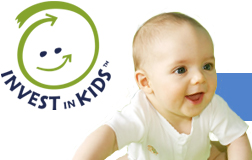

 |    | ||||||||
| |||||||||
| |||||||||
| ParentsAges and StagesBabies: A developmental overview | |||||||||
| |||||||||||||||||||||||||||||||||||||||||||
| |||||||||||||||||||||||||||||||||||||||||||
| |||||||||||||||||||||||||||||||||||||||||||
|
All children are different in their rate of development in each area , such as movement, talking and getting along with others. This information is meant only as a general guide for this age period. It's important not to compare your child to other children too much. And don't expect more of your child than he's yet able to do - it will only be frustrating for both of you. Newborns What an exciting time! You and your baby are discovering each other, and your child is discovering the world. Your newborn is dependent on you for everything, but has more capacities and abilities than you'd think. The best way to learn about your baby is to spend lots of time with him. You'll learn about his temperament, about how sensitive he is to touch, sounds and sights, about what upsets him. Each child is unique and requires different care. Newborns go through a cycle of sleeping, eating, crying and being alert. Many sleep 18 out of 24 hours, but it's often in short periods, and usually during the day more than the night. You'll have to help him learn the difference between night and day, such as by darkening the room and keeping things quiet at night. During the first few weeks, many parents feed "on demand" (whenever the baby seems hungry), but by about three months you can begin to establish a routine. Crying is your baby's easiest way to get attention and tell you what he needs. You cannot spoil a baby by meeting his needs in the first year of life. It's common for babies to cry more and more during the first six weeks. Then it usually eases off, as they learn to soothe themselves. When your baby cries, you should go to him and try to figure out if he is hungry, wet or just needs to be held. Not responding to crying often makes a baby cry more. A newborn isn't trying to please you or upset you - he doesn't know how. He just lets you know when he needs something, or is upset or happy. To help your baby learn about the world, make sure he has safe things to look at (like mobiles and pictures), listen to (like music or a rattle), feel (like fabric or soft toys) and hold and bite (like teething rings, rattle, plastic cups and bottles). Three months By three months, your baby should be a little more predictable for eating and sleeping times. She'll also have longer periods of being alert, and will be more interested in what's around her. She'll be good at eye contact with you and will smile at people more. She'll move her arms and legs more, reach for things and enjoy looking at objects. She'll also be making cooing sounds, like "ooh" and "aah," and will enjoy listening to you talk to her. Whenever you're with her, carry on a running conversation - you're actually helping her learn to talk by letting her hear lots of language sounds. Six months By six months, you'll probably notice that your baby is happier being with you and other people he knows well instead of with strangers. Making your baby feel protected and comforted will promote a secure attachment. He'll try to get your attention more, and will like being close to you, having you read stories and so on. He'll also enjoy two-way games, like peek-a-boo. Seeing himself in a mirror and seeing other babies will also be popular. By now, your baby can make some gestures to show what he wants, such as raising his arms when he wants to be lifted. He also likes to make things happen, such as shaking an object to make a noise. He can also move a toy from hand to mouth, and bang a spoon placed in his hand. And about now he's probably responding to his name, looking up at you when you say it. He coos, chuckles, gurgles and makes some consonant and vowel sounds. He can probably stay alert for about two hours at a time. You'll notice he shows more emotions and moods, and they can change very quickly. He can express sadness, anger, happiness and excitement. He can also begin to quiet down on his own - an infant can self-soothe by sucking, but still needs his parents to comfort him when he is overwhelmed. One year At about a year old, your baby will be actively learning about what's around her, with fearlessness and curiosity. She will be walking alone any time now, and can grasp objects with thumb and forefinger. She'll be really focussed on you, and will want to keep you in sight as she explores. The more a caregiver is available to a child, providing a relationship she can count on, the more it promotes forming a secure attachment. She learns to function independently, because she feels confident and safe.As she tries to become independent, she needs to be allowed to feed herself and help with dressing, such as by putting her arms up. She learns by doing things over and over, and will like the same stories and games repeated. You'll notice that she's also a great imitator of adult behaviour - she likes to "perform." She'll say her first word about now, and she can follow simple commands, like "come to Mommy," and understand simple questions, like "where's the ball?". She's also starting to learn what "no" means. Make sure your home is safe, because she can get around more now. It's a good idea at this stage for both child and parent to socialize with other babies and adults, such as in play groups or coffee groups. 18 months As your child approaches 18 months, he is feeling more independent, and also as if he's the centre of the universe - but not in a bad way. He's learning that he's a separate person, which is wonderful and scary for him all at the same time. Your child may try to learn about your limits by testing you in different situations. As he becomes more of an individual, he'll be very curious and "get into things." Physically, a child of this age typically can go up and down stairs with his hand held, throw a ball, sit down from standing and "dance" to music. He can also stack a few blocks, turn pages in a book, scribble, and fill and empty containers. Socially, your child will enjoy playing near other children, but not necessarily with them - there isn't any sharing yet. He can feed himself but is still messy; he can also drink out of a cup. He's beginning to pretend play and initiate activities. He doesn't understand "later" though, so still probably wants everything right now. He can use about 10 or 20 words, but understand many more, and babble away in what seem like sentences but may as well be a foreign language. You can probably understand him about a quarter of the time. He uses gestures a lot now, and likes to play "what's that?" a great deal. Things to remember about infancy:

 | |||||||||
Copyright © 2007 Charitable No. 88988 5521 RR0001 Invest in Kids
Privacy Policy | Terms of Use | Sitemap | Contact Us | en français













